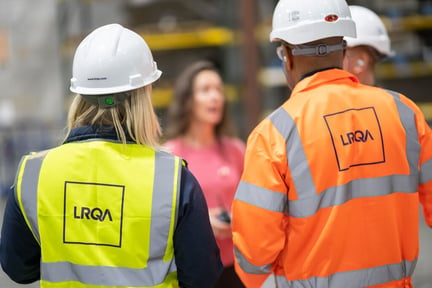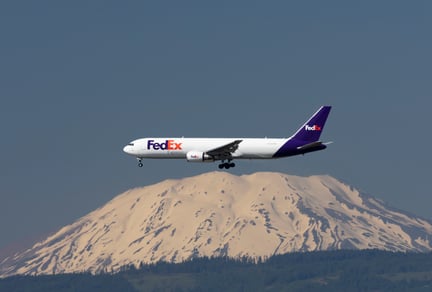The AS 9100 rules are due to be amended. These changes introduce significant updates to the auditing and certification processes. Here, we discuss key changes and implications.
What is AS 9100?
AS 9100 is an internationally recognized Quality Management System (QMS) standard specifically designed for the aerospace industry. It is based on the ISO 9001 standard, with additional requirements tailored to meet the unique needs of aerospace organizations. These additional requirements address safety, reliability, and regulatory compliance in the aerospace sector, ensuring that products and services meet the highest quality standards.
The rules behind the AS 9100 series of standards are set to be amended, and will be rebranded as "IA 9100," accompanied by a new revision status. Although the draft standard is nearing completion, it has yet to be submitted for voting—primarily because IA 9100 must incorporate any upcoming amendments to the core ISO 9001 Quality Management System (QMS) standard text, which may not be finalised for another year.
In the interim, the International Aerospace Quality Group (IAQG) has acknowledged that certain aerospace-related revisions will be included. During recent meetings, the IAQG provided insights into some of the anticipated changes. Below is a summary of the key expected updates.
Key changes
- Reduction in number of site structure types
The upcoming amendments simplify site structure classifications. Moving forward, there will only be two structures: single site and multiple site. The previously recognized structures, including “several-site,” “campus,” and “complex organizations,” will no longer be referenced.
- Annual audits of the purchasing process no longer mandatory
In a move aimed at streamlining audits, the requirement to audit the purchasing process during each annual audit has been removed. This change is expected to reduce the audit burden on organizations and focus resources on other critical areas.
- Pre-audit data must be provided (OCAP data)
Organizations are now required to participate actively in the pre-audit planning process by submitting QMS performance and change data in advance. This data, referred to as Organization Certification Analysis Process (OCAP) data, must be provided to the Certification Body (CB) at least 90 days prior to each audit. The OCAP data includes:
- On-time delivery metrics of the organization’s product or service to the customer
- Conformity of the product or service to customer requirements
- Instances of customer complaints or OASIS feedback
- Organizational and process performance (KPIs)
- PEAR results from the last completed AQMS annual audit
- Customer and regulator approvals must be identified
From the initial stage of the audit process, any customer and/or regulator-specific approvals and their requirements must be identified and reviewed. This ensures that all relevant regulatory and customer expectations are considered early in the audit process.
- Mandatory use of OASIS v3
The transition to the OASIS v3 system is now mandatory for all audit reporting. Previous versions of OASIS and paper audit reports are no longer acceptable. This change aims to enhance efficiency and consistency in audit reporting.
- Introduction of a performance-based surveillance/recertification (PBS/RP) process
Organizations that consistently demonstrate high performance can benefit from a reduction in audit duration through the PBS/RP programme. The criteria to enter and maintain PBS/RP is significant.
- New requirements for managing NCRs
The AS 9101:2022 update introduces new requirements for managing non-conformance reports (NCRs) as outlined in the newly defined ‘Table 5.’
- New permissions for remote audits
Two new permissions have been granted as per the IAQG resolution log of May 2024:
- #168: Allows a 100% remote (ICT) Stage 1 audit at initial certification, unless the risk profile necessitates an on-site audit.
- #166: Permits 100% remote (ICT) transfer audits, enhancing flexibility in the audit process.
- AQMS consideration of climate change
In line with the recent amendment to ISO 9001:2015, certified organizations must now determine if climate change is a relevant issue and address it within their QMS. This requirement does not necessitate an increase in audit duration nor a special audit but underscores the growing importance of environmental considerations in quality management.
Expert insight
Gary Proctor, Aerospace Quality Manager at LRQA emphasises the importance of understanding these changes: “These updates represent significant shifts in the AS 9100 rules and underscore the ongoing commitment to improving audit processes and aligning with current industry needs and expectations. AS91XX-certified organizations are encouraged to review these changes thoroughly and prepare accordingly to ensure compliance and continued certification.”
As the aerospace sector continues to evolve, these updates to the AS 9100 rules will help organizations maintain high-quality standards and compliance, ensuring that they remain competitive in the global market. LRQA is committed to helping clients navigate these changes.








